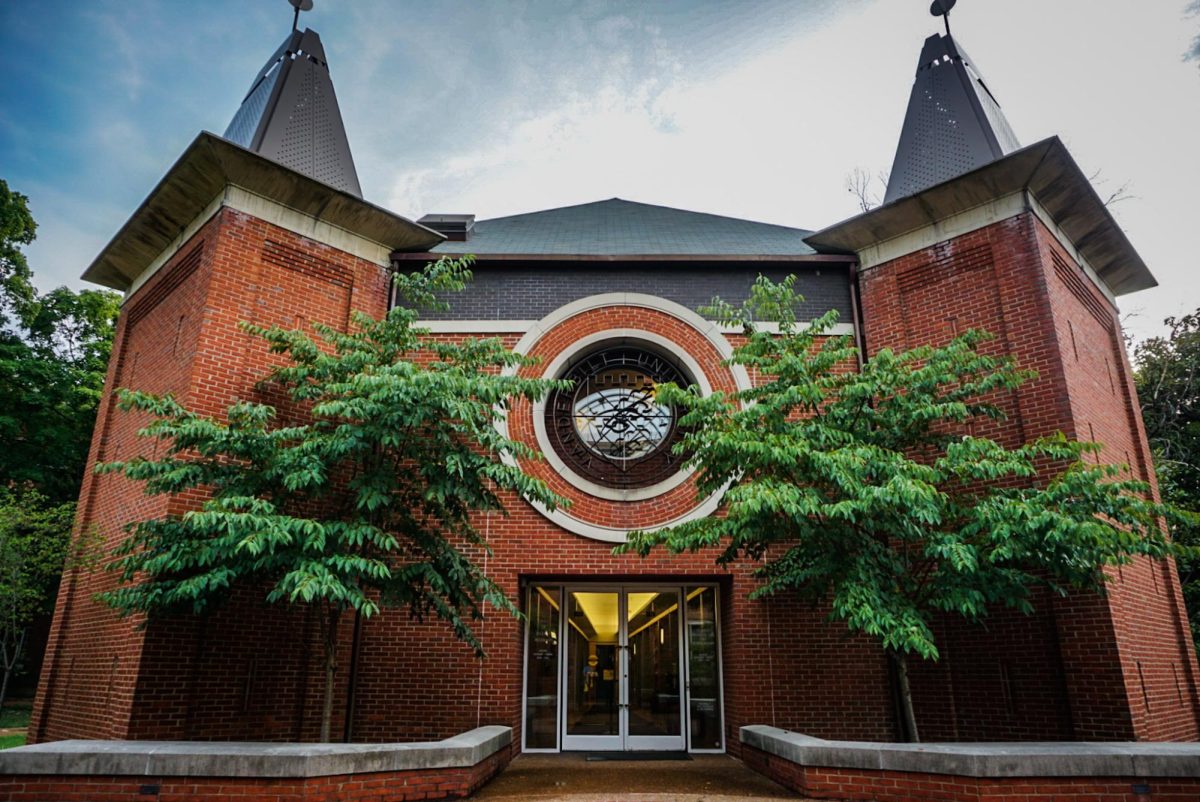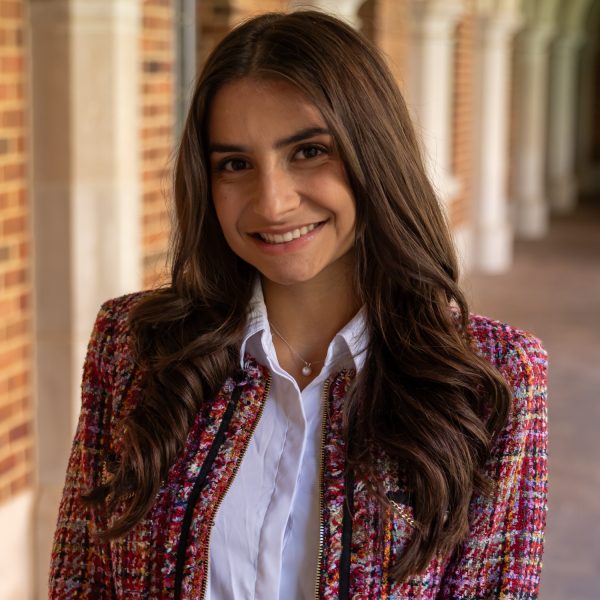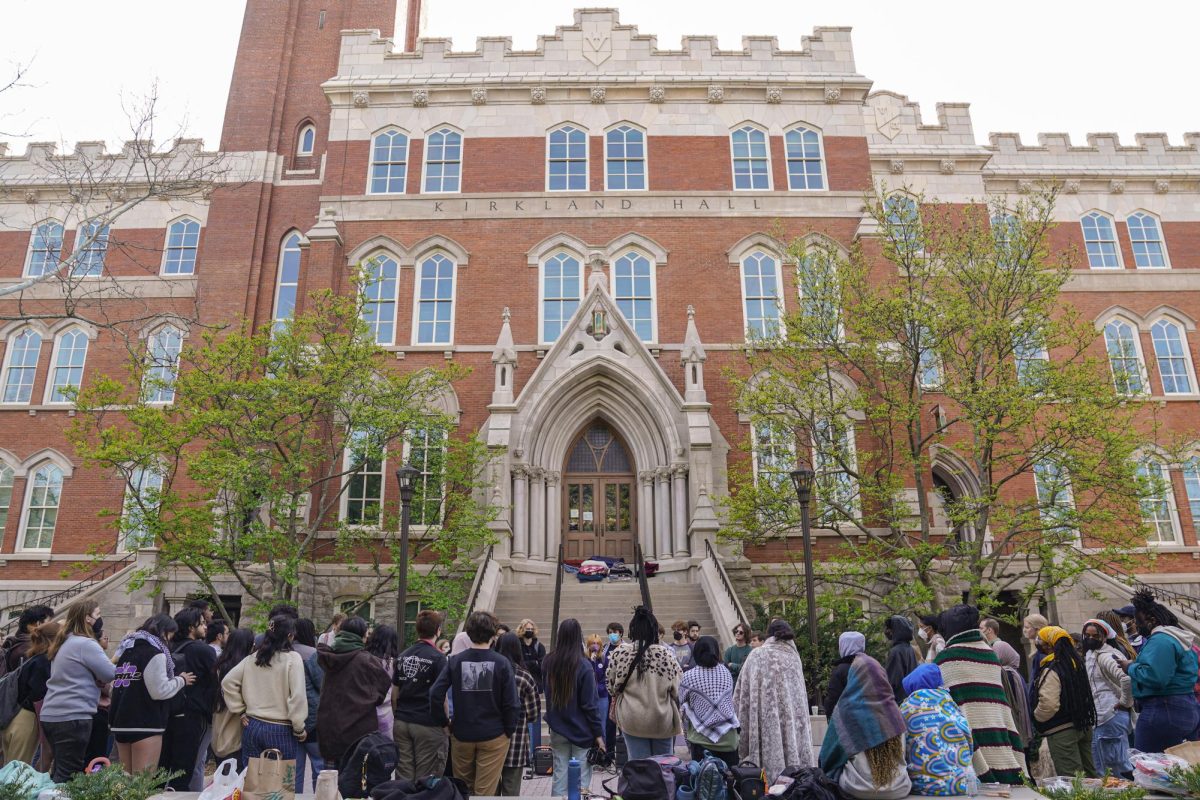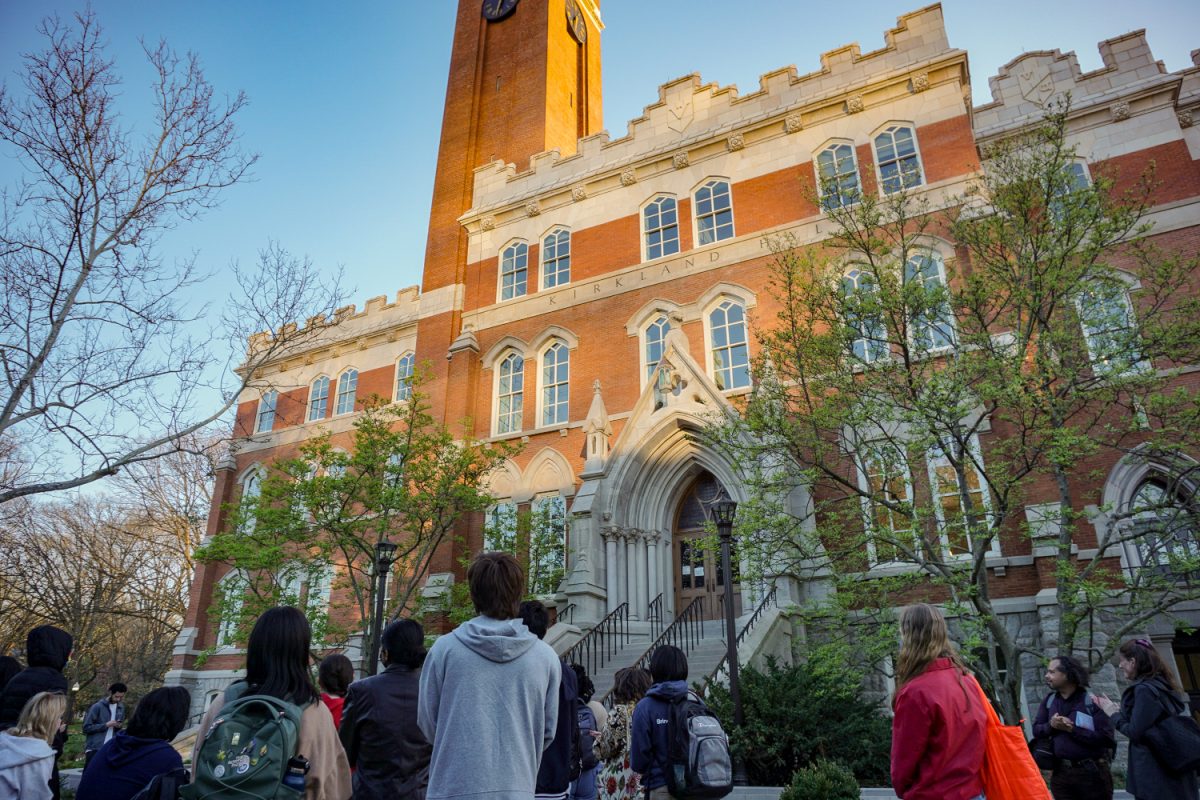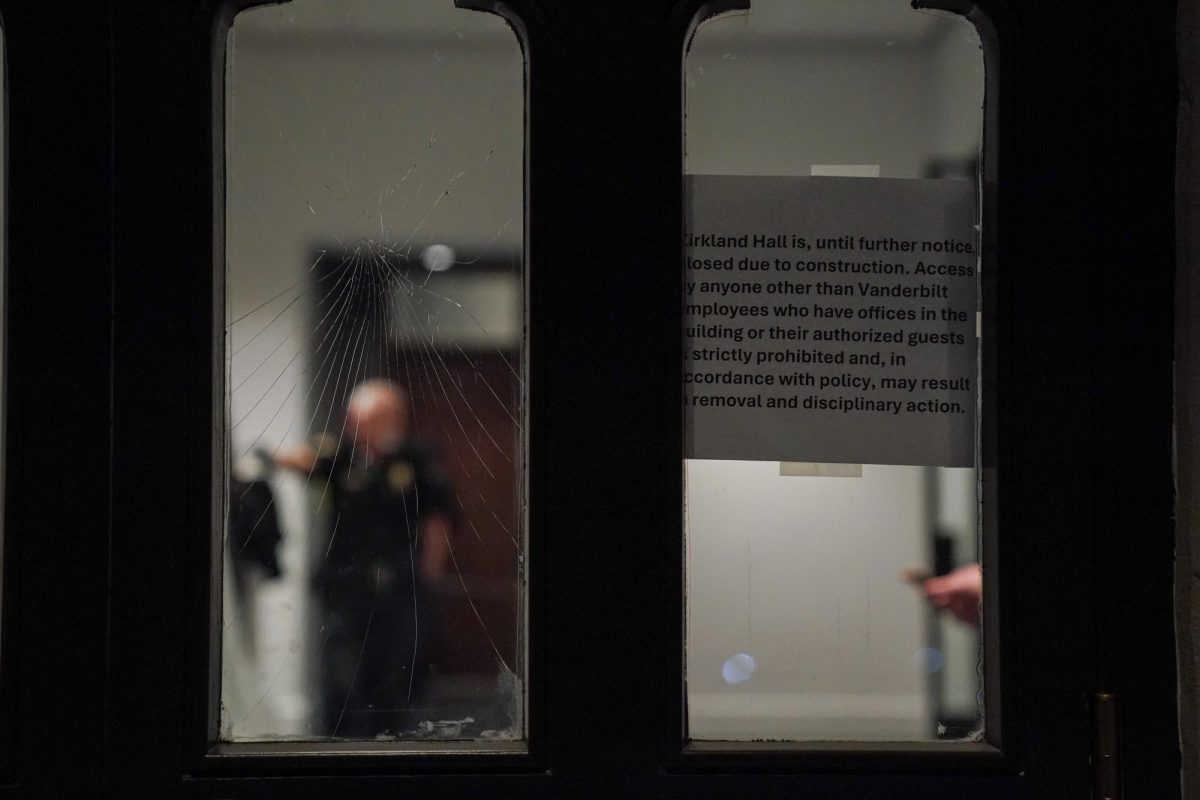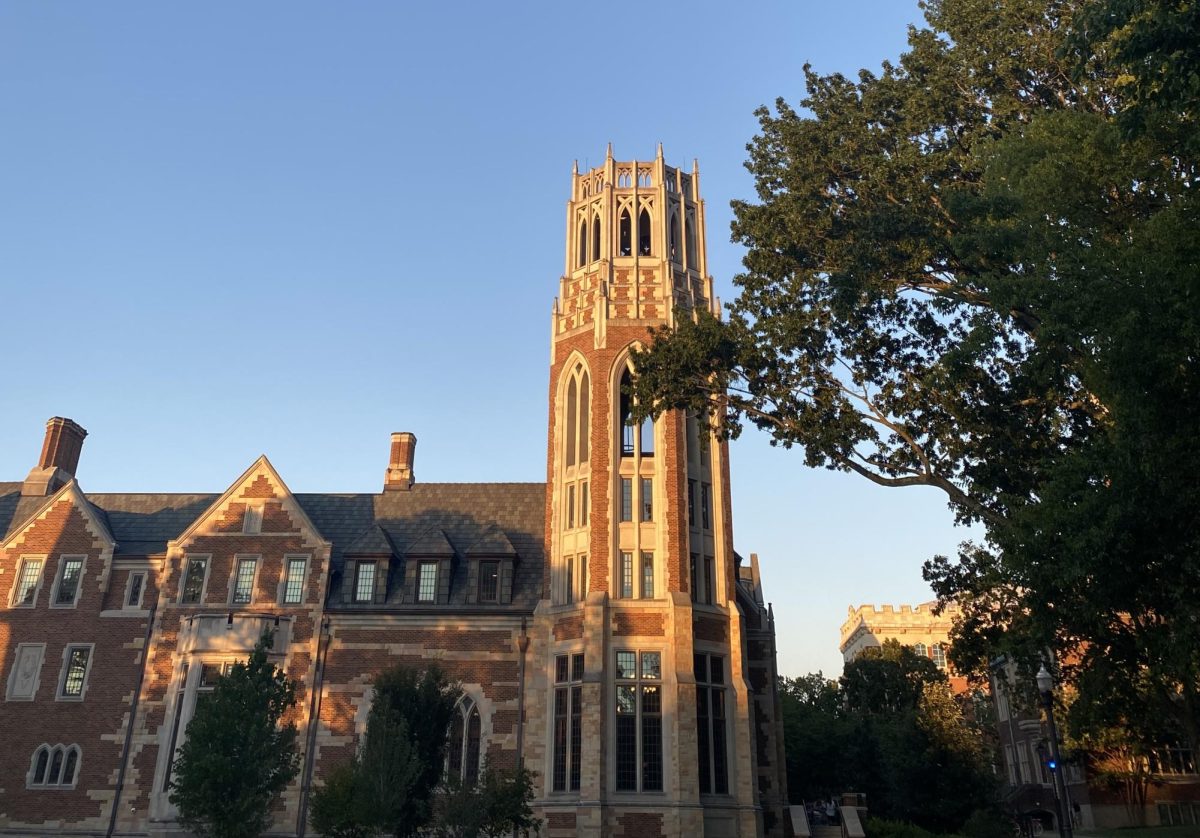Vanderbilt, whose stated mission is to become a top-10 academic and research institution, dropped five spots to No. 18 on the 2024 U.S. News Best National Universities ranking released on Sept. 18. University leaders criticized the ranking’s methodology, claiming it does not paint a full or accurate picture of universities, and expressed concern for its potential ramifications.
The changes in methodology come after top schools — including Vanderbilt Law School — recently opted out of the ranking, stating that it does not align with their values. Specific complaints include that the former system overemphasized GPA and test scores, discouraged public service work and fellowships and penalized admittance of disadvantaged students. The university has yet to decide whether it will participate in the ranking next year.
Ranking
Many universities experienced fluctuations in the 2024 ranking, with public schools notably rising in rank. Like Vanderbilt, many private schools dropped in rank. The University of Chicago and Dartmouth College both dropped six slots, while Wake Forest University decreased by 18 and Tulane University by 29.
Tucker Apgar (BA ‘23) stated that Vanderbilt’s decline in rank should be considered in context. He added that he does not believe the rank will negatively affect his post-graduate opportunities.
“While it’s upsetting to see Vanderbilt drop due to this change, we should understand this change in the context of many other private schools who have similarly seen a decrease due to said changes,” Apgar said. “U.S. News will not take away from the experience Vanderbilt provided me during my four years. Especially with regard to future [graduate school] applications, I don’t feel like the change in ranking will downplay my degree from nor my success at Vanderbilt.”
Jackson Davis (BS ‘23) agreed that he does not believe Vanderbilt’s drop in rank will affect students’ post-graduate opportunities.
“I don’t see Vanderbilt’s drop in the ranking having any meaningful impact on employment,” Davis said. “Vanderbilt is already a target school for various competitive firms, etc., and that will continue. So in that sense, this drop is inconsequential.”
University administrators expressed concern that students and families would make college decisions based on the ranking without understanding its shortcomings. They emphasized that prospective students should look at specific data points, rather than the final ranking. Maahiyaa Datwani, a high school senior in Southlake, Texas, stated that the 2024 ranking will not affect her college application decisions.
“I would apply [to Vanderbilt] regardless [of rank] because I know it’s a great school and I would get a great education,” Datwani said.
Similarly, Dr. James McFarland, director of undergraduate German studies, stated that he is proud to work at Vanderbilt, emphasizing that ranking at No. 18 is still commendable.
“It’s an institution full of brilliant people. And these amalgamated rankings are pretty silly to begin with,” McFarland said. “A lot of universities are moving away from them, and I think there would be less heartburn if we did, as well.”
Sophomore Emma Rheanne said she believes the change in rank is accurate, demonstrating a need for Vanderbilt to grow. She encouraged students to engage with opportunities to progress as a university, rather than being upset about the rank.
“It reflects Vanderbilt’s complacency. Because Vanderbilt knows it is prestigious, the school has gotten comfortable with slowing internal improvements,” Rheanne said.
Metrics
This year’s ranking removed weight from students’ high school class standing, alumni giving, percentage of faculty with terminal degrees and class size. It added weight to bibliometrics; post-graduate salaries of federal borrowers compared to high school graduates; and first-generation college student and Pell Grant recipient graduation rates compared to those of other students. The weight of three other metrics — graduation rates, faculty salaries and per-student financial resources — decreased.
Olivia Kew-Fickus, chief data officer and executive director of data & strategic analytics, told The Hustler that students “really care” about class size and faculty expertise, metrics that were removed from this year’s methodology. She further stated that alumni giving can offer insight into a school’s quality of education.
“There are various views around that,” Kew-Fickus said about factoring alumni giving into ranking metrics. “But it does indicate how invested your alumni continue to be in the institution and how much they value the education they received.”
While Kew-Fickus acknowledged the importance of post-graduate outcomes — an emphasis of the new metrics — in choosing a school, she said the ranking did not display these outcomes accurately.
“At a conceptual level, it makes a huge amount of sense that, when you’re looking for college, one of the things you care about is being able to get a job at the end of it that pays an amount that you want,” Kew-Fickus said. “The problem is, there is nowhere, nationally, a good source of graduate earnings data for all graduates.”
Junior Suhaah Nadir, president of FirstVU — a student organization dedicated to supporting first-generation college students at Vanderbilt, stated that, though she believes alumni giving, class size and faculty expertise are relevant metrics, social mobility was a necessary addition to the methodology.
“Social mobility is a significant metric in determining whether university resources are contributing to student success beyond personal advantages,” Nadir said.
Data sources
Compared to in the past, U.S. News used more public data this year to develop rankings, which Kew-Fickus attributed to schools opting out of the ranking.
“[U.S. News is] trying to get themselves back into a position where you don’t get to choose whether you get ranked by U.S. News or not,” Kew-Fickus said.
The data used to determine individual metrics are based on different cohorts of students and faculty, ranging from data on students who entered college in 2011 to bibliometrics from 2022.
Specifically, U.S. News relied on data from the U.S. Department of Education’s College Scorecard and Integrated Postsecondary Education Data System (IPEDS) to collect data about Pell Grant recipients, first-generation students, borrower debt and post-graduate earnings.
According to Kew-Pickus and Director of Institutional Research and Assessment Richard Iannelli, this use of data is misleading because College Scorecard and IPEDS only include data on federal borrowers and Pell Grant recipients. Iannelli said around 33% of Vanderbilt students fell into this category at the time the data was collected, a statistic he attributed to the success of Opportunity Vanderbilt. Therefore, they state that U.S. News’ measures of first-generation students’ post-graduation success and graduation rates are inaccurate and exclude data on two-thirds of Vanderbilt’s student body. In their Sept. 18 emails to students, faculty and alumni, Chancellor Daniel Diermeier and Provost C. Cybele Raver emphasized this aspect of the ranking, calling it a “glaring” flaw.
“We are enrolling the most qualified undergraduates we’ve ever enrolled…We are doing incredible things, and you can see the kind of energy and change at Vanderbilt. And that’s not reflected at all in what U.S. News has done in terms of the ranking,” Kew-Fickus said.
Kew-Pickus and Iannelli stated that updated data on the university’s first-generation and Pell Grant recipient populations will be available later in the fall semester. Kew-Fickus added that the university does not typically publicly release this data because it is not required to do so.
In a Sept. 7 article, The New York Times analyzed the percentage of Pell Grant recipients in the Fall 2020 entering classes at 283 universities. At Vanderbilt, 18% of students in this class are recipients, compared to 13% in the Fall 2010 entering class. Nationally, 32% of college students were Pell Grant recipients in Fall 2020 and Fall 2010.
Iannelli and Kew-Fickus also expressed confusion about U.S. News’ definition of first-generation college students. While U.S. News defines first-generation college students as “those…who were first in their families to attend college,” Iannelli and Kew-Fickus said Vanderbilt defines first-generation students as those who are first in their families to graduate college.
Despite its other shortcomings, the pair explained that College Scorecard accurately measures borrower indebtedness.
“I don’t have an argument with a lot of the different data points,” Kew-Pickus said. “People should continue to look at that and make their own decisions about what’s important to them.”











